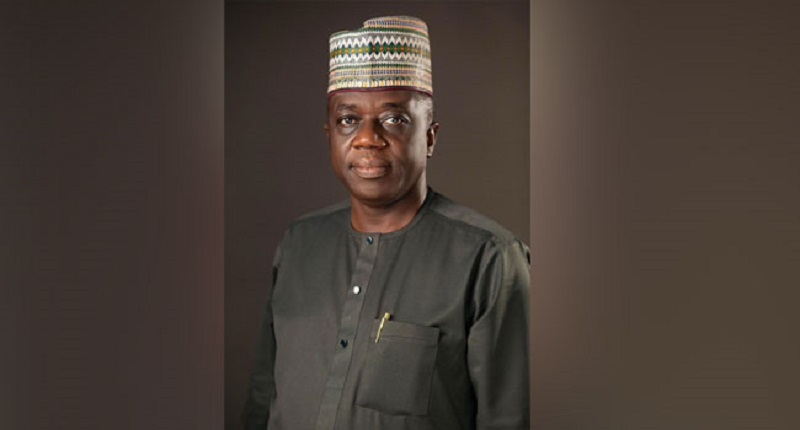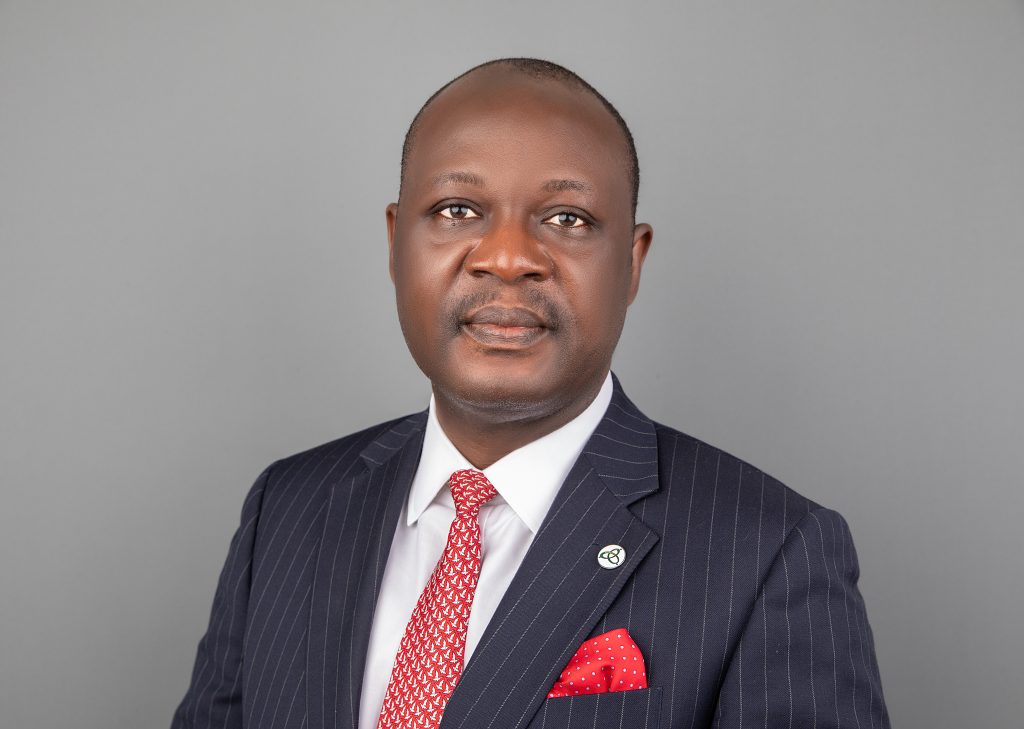Jobs/Appointments
Study Sees Africa’s Green Economy Creating 3.3 million Direct Jobs by 2030

By Modupe Gbadeyanka
About 3.3 million are projected to be created by 2030 from Africa’s green economy, with Nigeria contributing between 60,000 and 240,000, a new study by Shortlist and FSD Africa, with analysis from the Boston Consulting Group said.
The research titled Forecasting Green Jobs in Africa outlined key strategies required to cultivate Africa’s green jobs ecosystem: from targeted investments in high-potential sectors and value chains, the fostering of cross-sector collaboration among governments, private sector, educational institutions and investors, to the development of comprehensive support policies for green sectors.
It also called for further analysis and granularity to labour demand key value chains to identify Africa’s current skilled labour supply and any potential gaps.
The report, a first of its kind that forecasts the new direct job creation potential of 12 “green” sub-sectors by 2030, is expecting the majority of the new jobs in the renewable energy sector, particularly solar, with focus on the Democratic Republic of Congo (DRC), Ethiopia, Kenya, Nigeria and South Africa, which together account for more than a fifth (22 per cent) of new jobs, and in key sectors such as renewable energy, e-mobility, agriculture, construction and manufacturing.
It was discovered that South Africa, Kenya and Nigeria represent the highest job creation potential (16 per cent) due to population, gross domestic product (GDP) and industry maturity.
In addition, the renewable energy sector alone is expected to generate up to 2 million jobs (70 per cent of the total) of which 1.7 million will be in solar.
Further, solar is the most important contributor to green jobs in South Africa (140,000 jobs) and Kenya (111,000 jobs), while hydroelectric is forecast to be the leading employer in both DRC (16,000 jobs) and
Ethiopia (33,000), and agriculture and nature are forecast to produce up to 700,000 jobs (25 per cent of total), of which more than half (377,000) will come from climate-smart agriculture technology.
While some experts have suggested that up to 100 million green jobs may be created by 2050, this report takes a more near-term, sober, and realistic look at the job creation potential of just 12 specific sub-sectors or value chains and only until 2030.
Significantly, it predicts that 60 per cent of the employment generated by the green economy over the coming six years will be skilled or white-collar in nature. Within this, 10 per cent constitute “advanced jobs” (highly skilled, requiring university degrees to fulfil), whilst a further 30 per cent are projected to be “specialized” (requiring certification or vocational training) and 20% will be administrative in emphasis.
Crucially, these job types tend to attract higher salaries and will, therefore, play a central role in spurring the growth of the middle class in countries hosting these high-growth sectors. Important also is the stability of the unskilled jobs created – which will offer ladders up the employment scale for candidates, whose employability will be enhanced by access to training and experience.
“There is a cross-sector effort across Africa to spur employment and sustainable development,” said Mark Napier, CEO of FSD Africa, “but stakeholders lack a shared, granular understanding of where the green jobs are going to come from. This report offers a methodology for forecasting green jobs which allows us to get practical about where we need to invest to make these jobs happen.”
“This is the first public report that takes seriously the notion that human capital and talent is important as both an input to green economic growth and as a positive outcome – in the form of millions of new, direct jobs,” says Paul Breloff, CEO of Shortlist. “Now policymakers, and funders, and workforce developers need to step up to meet this near-term demand with effective training, apprenticeships, and job/skill matching, in hopes of achieving Africa’s green promise.”
Jobs/Appointments
Tinubu Appoints Ogunjumi Acting Accountant General as Madein Retires

By Adedapo Adesanya
President Bola Tinubu has appointed Mr Shamseldeen Babatunde Ogunjimi as the Acting Accountant General of the Federation (AGF).
This was contained in a statement on Tuesday by presidential spokesman, Mr Bayo Onanuga.
“His appointment is effective immediately following the pre-retirement leave of the incumbent AGF, Mrs Oluwatoyin Sakirat Madein,” a part of the statement read.
“In announcing Madein’s successor, President Tinubu ensures a seamless transition in the administration of Nigeria’s treasury and consolidates the implementation of the present administration’s treasury policy reforms,” the statement added.
Mr Onanuga said Mr Ogunjimi brings over 30 years of extensive experience in financial management across the public and private sectors.
He described the appointee as a career civil servant and the most senior director in the Office of the Accountant General of the Federation (OAGF),
“He has held significant positions, including Director of Funds at the OAGF and Director of Finance and Accounts at the Ministry of Foreign Affairs.
“A chartered accountant, certified fraud examiner, chartered stockbroker, and chartered security and investment specialist, Mr Ogunjimi’s academic qualifications include a Bachelor of Science (BSc) in Accountancy and a Master’s in Finance and Accounting,” the statement added.
According to Mr Onanuga, President Tinubu expressed his confidence in his appointment, saying, “The Office of the Accountant General of the Federation is pivotal to our nation’s treasury management operations. Mr Ogunjimi’s wealth of experience and notable competence will ensure the continued effectiveness of this vital institution as we advance our economic reform agenda.”
President Tinubu also commended the outgoing Accountant General of the Federation, Mrs Madein, for her dedication and selfless service to the nation.
After reaching the civil service’s statutory retirement age, Mrs Madein is retiring effective March 7, 2025.
Jobs/Appointments
CBN Denies Forceful Mass Retirement Amid Restructuring

By Adedapo Adesanya
The Central Bank of Nigeria (CBN) has dismissed claims of forced mass retirement as part of efforts by Governor Yemi Cardoso to restructure the workforce of the organisation.
In a statement released on Wednesday, the Acting Director of Corporate Communications, Mrs Hakama Sidi Ali, clarified that its Early Exit Package (EEP) is entirely voluntary and without any negative repercussions for eligible staff.
According to the statement, the decision to implement the exercise was the outcome of extensive consultations with the bank’s Joint Consultative Council (JCC), a body representing staff interests.
Mrs Sidi Ali explained that the EEP, a longstanding policy previously accorded to the executive cadre, has now been made available to eligible staff at all levels.
“For some time, staff representatives through the JCC had called on management to approve the early exit package for all cadres. Following these discussions, management decided to meet this popular demand,” she said in the statement.
Addressing concerns about potential repercussions for staff who decline the package, Mrs Sidi Ali reaffirmed management’s commitment to supporting employees’ professional growth and well-being, describing the concerns as unfounded.
She further emphasized that the initiative is an internal corporate matter designed to promote career development for staff.
According to wide spread reports, there have been plans to retire approximately 1,000 employees by the end of the year with a payoff estimated to cost over N50 billion.
The mass retirement, which was announced in a circular issued three weeks ago, mandates affected employees to apply for the Early Exit Package (EEP).
The statement allegedly warned employees with less than one year of service or unconfirmed appointments to refrain from applying for the program, noting that the application would remain open until December 7, with an effective exit date of December 31, 2024.
It was reported that the entire EEP was valued at N50 billion.
Jobs/Appointments
CBN Okays Appointment of Benson Ogundeji as Greenwich Merchant Bank CEO

By Modupe Gbadeyanka
The Central Bank of Nigeria (CBN) has approved the appointment of Mr Benson Ogundeji as the chief executive of Greenwich Merchant Bank Limited.
The board of the financial institution for businesses had picked Mr Ogundeji as its substantive CEO but awaited the authorisation of the banking sector regulator.
He brings over three decades of extensive banking experience to this role as a seasoned financial services professional, who previously served as Executive Director at Greenwich Merchant Bank from July 2020, where he played a pivotal role in the bank’s successful transition from the legacy Greenwich Trust Limited to a merchant bank.
In this capacity, he provided oversight for Corporate Banking, Treasury and Global Markets.
Throughout his career, Mr Ogundeji has demonstrated exceptional expertise in business development and operational excellence.
Before joining the firm, he held various senior leadership roles at prominent financial institutions, including Ecobank Nigeria, GTBank, and other notable banks, where he consistently displayed exceptional leadership skills.
His appointment comes at a crucial time as Greenwich Merchant Bank commences the next phase of its growth plans. Having related closely with the new CEO, as an Executive Director and acting CEO in the last four years, the board has expressed confidence about his ability to lead the bank in delivering our strategic goals.
“The board is pleased to announce the appointment of Benson Ogundeji as our Managing Director/Chief Executive Officer,” the chairman of Greenwich Merchant Bank, Mr Kayode Falowo, stated.
-

 Feature/OPED5 years ago
Feature/OPED5 years agoDavos was Different this year
-
Travel/Tourism8 years ago
Lagos Seals Western Lodge Hotel In Ikorodu
-

 Showbiz2 years ago
Showbiz2 years agoEstranged Lover Releases Videos of Empress Njamah Bathing
-

 Banking6 years ago
Banking6 years agoSort Codes of GTBank Branches in Nigeria
-

 Economy2 years ago
Economy2 years agoSubsidy Removal: CNG at N130 Per Litre Cheaper Than Petrol—IPMAN
-

 Banking2 years ago
Banking2 years agoFirst Bank Announces Planned Downtime
-

 Sports2 years ago
Sports2 years agoHighest Paid Nigerian Footballer – How Much Do Nigerian Footballers Earn
-

 Technology4 years ago
Technology4 years agoHow To Link Your MTN, Airtel, Glo, 9mobile Lines to NIN











